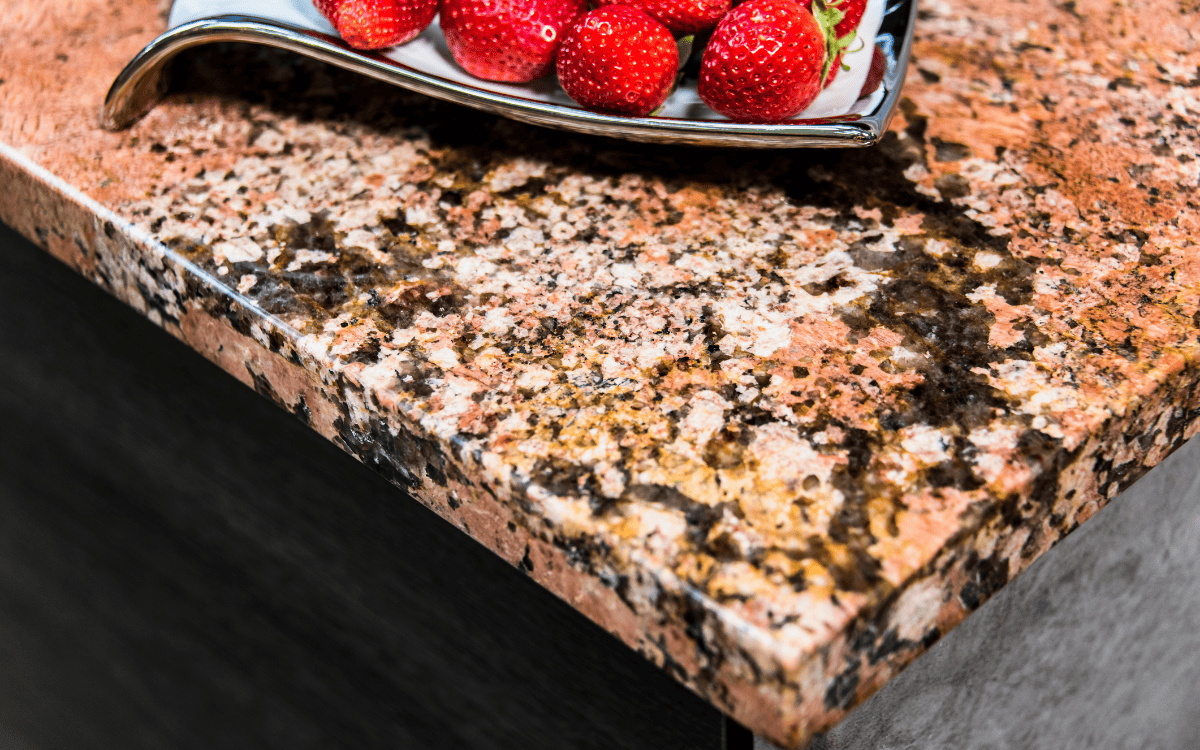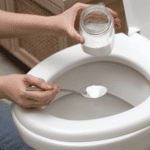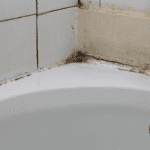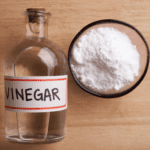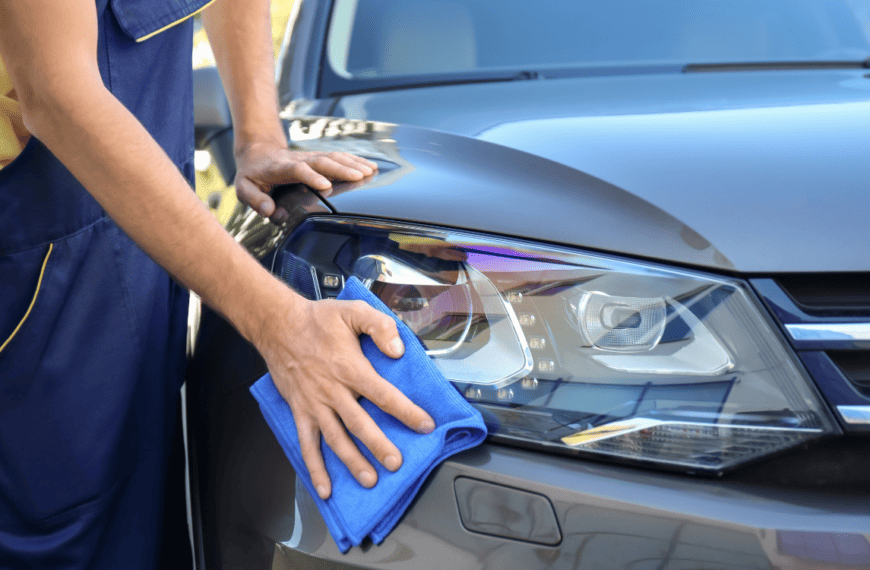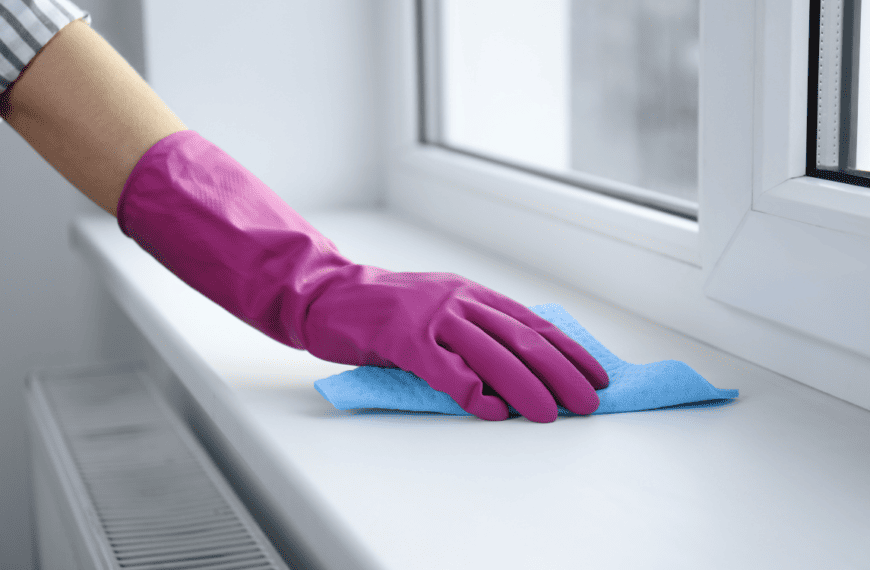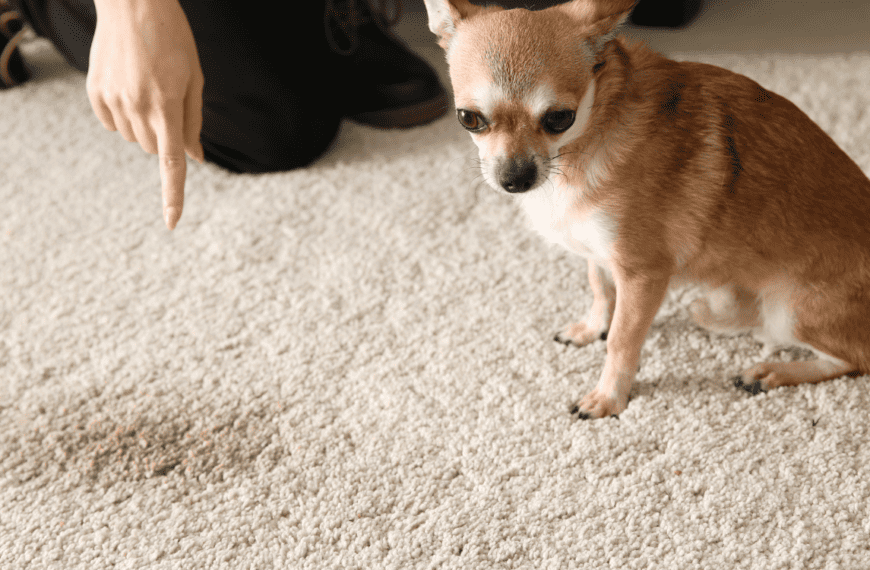A stain on a granite counter can cause some panic when it’s first noticed. The granite countertops in your kitchen or bathroom are probably some of the more expensive items in your home. After having dealt with stains from food, drink, and even oil many times; I can show you how to remove stains from granite quickly and easily so you can restore the look of your natural stone.
Important Tips Before You Begin
We don’t want to make the stain worse or set it in further; here are some of the things you should know before you begin removing stains from granite.
- Know the type of stain you are working with. Water based, mineral based, oil-based, and even organic stains can be treated in different ways
- Always test an inconspicuous spot on the granite before you apply a stain removal product or process to the entire granite countertop; if you don’t, you may experience issues with discoloration
- Read any manufacturer guidelines that came with your granite countertops; there are certain substances and cleaning products that may be unsafe to use
- Before starting the stain removal process, wipe the granite with a soft cloth and water; this will remove excess debris and let you work with the stain itself
- An abrasive scouring pad or hard bristle brush can cause long-term damage to the stone surface
- Sometimes, granite stain removal can take time as the stains work their way out of granite surfaces; going through one or more rounds of stain removal is common
- Stay away from products that are highly acidic and use them with caution
Summary of Methods for Different Stains
| Type of Stain | Key Cleaning Ingredients | Additional Tools Needed |
|---|---|---|
| Food and Drink | Baking Soda, Water | Plastic wrap, Tape, Plastic scraper |
| Hard Water Stains | Distilled White Vinegar, Water | Soft cloth |
| Oil-Based and Rust | Baking Soda, Water | Plastic wrap, Plastic scraper |
| Water Stains | Dry Cloth | None |
| Ink and Paint | Rubbing Alcohol | Soft cloth |
| Mold and Mildew | Hydrogen Peroxide (3%), Water | Soft microfiber cloth |
Is It Stain or Etch?
A stain and an etch in your granite can look the same at first glance. However, a stain will lighten when you put a little water on it; the etch will likely stay the same. In addition, the area where you have an etch could be scratchy or rough. A stain is typically caused by a food or even cosmetic product on your granite; an etch is created by a chemical, sharp object, or even too much heat.
Supplies and Tools Needed To Remove Stains From Granite
Here are the necessary supplies to remove stains from granite. The supplies you need will vary depending on if you are working with oil based stains, organic stains, water stains, etc.
- Clean absorbent cloth
- Baking soda
- Plastic wrap
- Tape
- Plastic scraper
- Granite Sealer (optional)
How Can You Get Stains Out of Granite?
To remove food and drink stains from granite, create a paste with equal parts baking soda and water. Apply the paste directly to the stain, cover it with plastic wrap, and tape down the exterior edges. Make sure you have about a ½ inch of baking soda paste covering the entire stain. Let the stain remover paste sit on the stain for 24 to 48 hours. Remove the plastic wrap, use a plastic scraper to lift the baking soda paste off the surface, and clean with a soft cloth and warm water. Repeat the process if stains are still present or (if stains are gone) apply a granite sealer to ensure better protection from stains in the future.
Methods for Other Types of Stains (Natural and Non-Natural)
Before we start this complete stain removal process for other types of stains on granite, it’s important we get the elephant out of the room. I know you are wondering: Can granite permanently stain? Granite can permanently stain, especially if the stain is allowed to sit; if you are dealing with unsealed granite surfaces, the stain has a strong pigment or is highly acidic. These steps and quick action can help you avoid permanent stains.
Natural Stain Removers for Granite
Hard Water Stains
The most effective stain remover for hard water stains on granite counters is vinegar. Vinegar is acidic, so you want to be smart to avoid long-term damage from using vinegar. Essentially, never let it sit on the granite surface.
- Fill a container with a half a cup of distilled white vinegar and a half a cup of water
- Use a soft cloth to apply a bit of the cleaning agent to the hard water stains
- Let the natural acidity of the vinegar water break down the mineral deposits in the hard water as you wipe away the stains; no need to scrub; simple wiping works just fine
- Rinse the area with a damp cloth after cleaning, and then dry it completely
Oil Based Stains and Rust Stains
An oil stain can take a little more time to remove as the oil works itself out of your granite surfaces. I would use this method on grease stains, stains from cooking oil and olive oils, and even makeup with an oily base. In addition, rust stains often need some time to dislodge themselves from granite.
- Create a paste mixing equal parts baking soda and water
- Apply the paste to the oil stains
- Do not scrub the paste; simply let it sit directly on the stain
- Check the stained area after one hour to see if it worked to lift the oil stain
- If it did not, you can make a secondary baking soda poultice, let it sit on the stain overnight covered in plastic wrap
- The next morning, use a plastic scraper to remove the baking soda
- Rinse with water and repeat if necessary
- If unsuccessful after at least three times, you may need to call in a professional for help
Water Stains
Water stains, not hard water stains, happen most likely when you are preparing things in the kitchen. The great thing about water stains is that you can just wipe them off the countertop with a dry cloth. If the water has already penetrated through the surface, don’t worry; the water stains will disappear after a day or two.
Non-Natural Methods
Ink and Paint Stains
For ink and paint stains, you will need to use a method that dissolves and lifts the paint; rubbing alcohol is the best for that.
- Take a soft cloth and soak it in rubbing alcohol
- Blot the stained area with the cloth, and then wipe dry
- Continue this process of blotting and wiping dry until the stain starts to lift
- Rinse the area with a clean cloth
- If the stain is persistent, you may need to use a product like Weiman Granite and Stone Cleaner to see if it is more effective in breaking down the paint and ink stains
Mold and Mildew Stains
Although bleach is often a go-to method for mold and mildew stains, I would stick with hydrogen peroxide (3%). Bleach can weaken your granite sealer, leave dull spots, and be dangerous to work with if you are using it on a food prep surface.
- Take a small container and mix two tablespoons of hydrogen peroxide (3%) with two tablespoons of water
- Use a cloth to apply the peroxide and water solution directly to the stain
- Let the cleaning solution sit on the stain for about 15 minutes
- Then, use a soft microfiber cloth to wipe and scrub the area; the hydrogen peroxide’s oxidizing properties can kill the mold and mildew
- Continue with more of a wiping process than a scrubbing; rinse with water and dry with a paper towel when finished
Treating Stains on Sealed vs. Unsealed Granite Counters
When granite countertops are professionally sealed, they can be very resistant to stains. The granite is a naturally porous material, but the sealer protects the surface. If stains are left untreated, they can easily break through the sealant.
Your best method for treating stains is immediate action. However, if you have unsealed granite countertops, you really have to act right away. In addition, don’t use abrasive cleaners like bleach or a scouring pad that could cause long term damage and etching.
Always do a spot treatment on any area of granite counters that you are going to treat for stains.
Consider using a granite sealer like Granite Gold if you want your granite to have a little extra protection.
Preventing Stains on Granite
As I’ve mentioned, the process of treating everything from water stains to biological stains on granite can be a bit time-consuming (and stressful). Here are a few methods to keep the stains from happening in the first place.
- Use a high-quality granite sealer like Granite Gold to give you that first line of defense against a stain
- Make sure to reseal your granite about every two years to help ensure that stains don’t have the chance to set in; if water is still beading up when poured on the counter, your sealer is still doing its job. If water is absorbed into the granite, you need to treat it with a sealer
- Use a daily cleaner like the Weiman Granite and Stone Cleaner that can be used on both granite and marble countertops for a streak-free shine
- Use a cutting board when working in the kitchen, and even set your glass on a coaster to avoid any additional stains
- Always wipe a spill as soon as it happens, or you will allow too much time for the stain to seep into the small holes in the granite surface
What Is Granite and Why Does It Stain?
Granite is a porous stone that is created from molten rock. Aside from the beauty of granite that attracts us to it, the resistance to stains, longevity, and durability are what make granite a popular countertop surface in both kitchens and bathrooms.
When compared to other natural stones like marble or limestone, granite is more stain-resistant. However, an engineered stone like quartz will have a greater defense against stains than granite.
Common stains that affect granite are oil based, water, hard water, and organic and food stains like BBQ sauce, fruit juices, and more. The age of your granite, the time since it was last sealed, and the original makeup of the granite will impact how porous it is and how resistant it is to stains.
Frequently Asked Questions (FAQ)
What if the Stain Is Particularly Stubborn and Doesn’t Come Off?
If a stain on your granite is stubborn and you tried the poultice application without success, it’s time to call in a professional granite or stone installer or fabricator to help you restore the original coloring and finish on your granite.
Can I Use Steel Wool on Granite?
Steel wool is an abrasive cleaner that is typically not recommended on granite surfaces. With very light pressure, some people have had success with steel wool on marble, but with both granite and marble surfaces, you have to be aware of fine scratches over time. Although you may not notice immediate damage, long-term damage is a real possibility.

